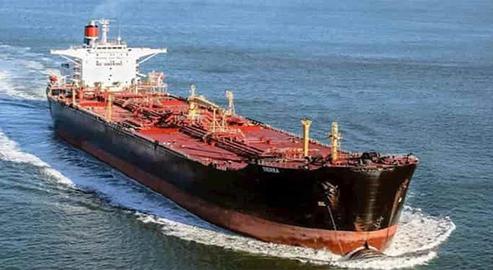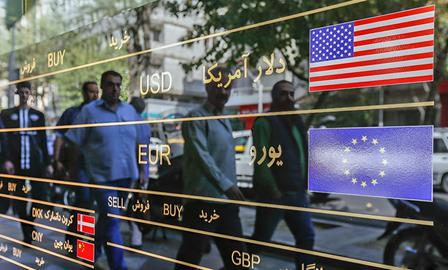The outlook of any future revival of the JCPOA remains opaque. In the meantime, the Islamic Republic is in desperate need of oil revenues. Officials from different arms of government and industry have been drafted in to help maintain a shady, mostly secret set of mechanisms for the ongoing sale of Iranian oil.
When these covert activities occasionally hit the headlines, many wonder how such a system can continue to operate in the face of wide-ranging, stringent international sanctions and the vast economic, judicial, and political cost involved. Moreover, the question is who benefits and who is put at risk. An article in the most recent issue of the Iranian quarterly Energy Law Studies, entitled The Impact of Economic Sanctions on Disputes Over the Purchase and Sale of Crude Oil, shed some light on where bad practice has become endemic in the blind spots.
A new generation of legal proceedings involving Iran have erupted since the reimposition of sanctions. Many of these have cost the Islamic Republic – and the Iranian taxpayer – dear. Some, especially in the US, relate to the overseas activities of sanctioned companies and their collaborators, and some to transnational disputes between the Islamic Republic and would-be clients. Inside Iran, sanctions have led to cases of rent-seeking and corruption, abuse of divergent exchange rates approved by the Central Bank and others, or delays to payments.
The new study attempts to examine the impact of economic sanctions on different parts of the Iranian petrochemical industry’s chain of transactions, and how this has both created new risks and led to new disputes between actors in the field.
Claims of Breach of Compliance with Sanctions: The first category of disputes the study identified were violations of “compliance with sanctions” clauses included in trade agreements. This condition has often given one party or another a contractual reason to refuse to fulfil its obligations, ultimately leading to a commercial dispute. Maritime transport contracts were the most commonly-afflicted by this issue, according to the study’s author.
Non-Transparent Relations: Another group of lawsuits identified by the study related to firms having had to establish non-transparent trade relations in order to secretly continue oil sales. This has led to the burgeoning use of shell and front companies or hastily-created subsidiaries to hide an Iranian parent firm’s true identity: one of the reasons the regime remains unwilling to join the global Financial Action Task Force (FATF), which discourages the practice.
Non-transparent business relations have already prompted disputes between oil companies and the NAJA Cooperative Foundation, as well as embezzlement scandals involving fixers such as Babak Zanjani. In one case, the Iranian Offshore Engineering and Construction Co. paid tens of millions to a broker, Reza Mostafavi Tabatabaei, to buy an oil rig that never materialized. In effect, sanctions have forced Iranian state entities involved in oil to rely on opaque relations with high-risk, inexperienced or unreliable third parties.
Lack of Transparency in Banking Relations: Most reputable international banks are currently refusing to open accounts, provide banking and financing facilities, or process payments involving companies and institutions with ties to Iran, for fear of facing secondary US sanctions. Their access to credible and stable international currencies such as the US dollar, the Euro, the Emirati dirham and the Japanese yen has become challenging as a result.
For this reason, many Iranian companies have resorted to using volatile local currencies and smaller banks. The cost of bank transfers, including transfer fees, and of currency exchange has risen sharply, leading again to disputes.
Lack of Transparency in Transportation and Cargo: Cargo companies and oil tankers linked to the Islamic Republic have been subject to extensive restrictions on their activity since the reimposition of sanctions. These businesses have struggled to get insurance coverage, secure fuelling and port services, or register ships in free-flag countries.
In some cases the sanctioned firms have resorted to trying to hide their ports of origin or destination, or the origin of the cargo. Mixing different shipments of goods together to change the stated identity of the consignment, hiding the true owner through shell companies, changing the consignment and ship’s documents such as certificates of origin, invoices, insurance and packing lists, shutting down the ship's automatic tracking system, announcing false intentions and constantly changing the managers and flags have become some of the myriad, high-risk means by which they now continue to operate.
Ship-to-Ship Transfer: This the transfer of cargo from one ship to another located next to it at a given time. This can be done both while ships are in port, and when on the sea. This activity is generally not prohibited but requires enormous care and preparation. The likelihood of a spill, fire, cargo loss and injury is high, making Iranian firms vulnerable to subsequent disputes.
One such episode came to light during the prosecution of Babak Zanjani in the Iranian courts. The court stated that the need for a ship-to-ship oil transfer between one of Zanjani’s subsidiary companies and the UAE’s Fal Oil Co. Ltd, gave rise to a legal dispute between the buyer and seller. After receiving the oil, Fal claimed Zanjani’s firm had added water to it to compensate for the deficit in oil shipments it had made elsewhere, and refused to pay the outstanding $500m to $700m.
Untracked Ships: According to UN regulator the International Maritime Organization, ships carrying more than 300 tons of cargo must have the automatic tracking system continuously turned on while at sea to prevent accidents and receive assistance if needed. The ship’s captain has the power to shut down his tracking system in very limited circumstances but in general, to do so is considered highly suspicious. Vessels that do so may be unable to get proper insurance coverage in future, making them vulnerable to high-cost disputes if something goes wrong.
Claims Arising from “Unforeseen Costs”: According to the study, many sanctioned oil sellers have offered discounts on transactions to make them more attractive to would-be buyers, or the opportunity to pay in instalments. But in many cases under sanctions, unforeseen costs have subsequently increased so much that one or other party is no longer able to fulfil their obligations.
Related coverage:
Report Lays Bare the State of Iranian Oil Exports Since the Shah's Time
Tehran and Caracas Cosy Up at UN with New Sanctions-Defying Oil Deal
How Much Have Delayed Oil and Gas Projects Cost Iran?
Iran has Been Ordered to Pay $607m to a UAE Gas Firm. Here's Why
New Gas Dispute Flares Up Between Iran and India
IRGC Claims it Thwarted US Oil Confiscation in the Gulf of Oman
visit the accountability section
In this section of Iran Wire, you can contact the officials and launch your campaign for various problems





















comments